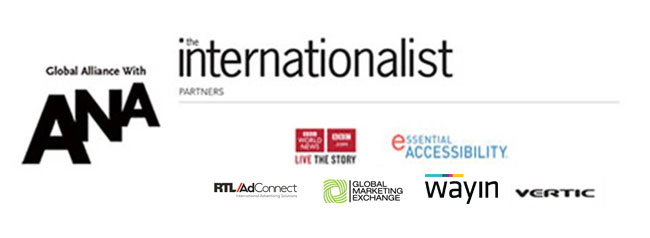
.jpg)
Leslie Zane
See the current issue
of The Internationalist magazine
Find out how to sponsor an issue of Trendsetters
|
|
If you have spotted a trend or given a recent presentation on a global issue, please tell use and don’t forget a photo of yourself!

To submit to Trendsetters, contact me at: linkedin.com/in/deborah-malone-ab5897,
The Internationalist group on LinkedIn:
https://www.linkedin.com/groups/2560753/or at Twitter--@DMaloneIntl
Trendsetters: Triggers' Leslie Zane Asserts that Every Brand Has Untapped Growth Potential
The Internationalist Trendsetters is written by Deborah Malone, founder of The Internationalist.
Declining mall traffic, competition from direct-to-consumer brands, and concerns about transparency in managing customer data were just a few factors in 2018 that caused more marketers to think seriously about developing new brand growth strategies.
Leslie Zane, Founder of Triggers®, a growth catalyst company that helps Fortune 500 brands become the dominant and instinctive brand choice believes, "Every brand, whether a startup or an established household name, has untapped growth potential and the ability to become the automatic choice of more consumers."
Together with Professor Michael Platt of the Wharton Neuroscience Initiative, Zane recently shared her principles for accelerating brand growth through Knowledge@Wharton, the school’s online business journal. She also elaborated on some of those thoughts for The Internationalist.
"Every brand," she says, "has a host of interconnected associations-- an ecosystem of multi-dimensional, accumulated memories that dictate which brand you instinctively favor and purchase most often. The more positive associations your brand has, the healthier it is and the greater its growth."
According to Zane, brands that dominate and are growing in their categories have a myriad of positive associations. She and Professor Platt call this "constellation of brand associations" the Brand Connectome®, which is comprised of every accumulated memory a customer has of the brand-- both positive and negative. "Think of the brand as a tree planting its roots in customers’ subconscious," says Zane. "As the brand grows, it adds more associations and more branches to hold them. And as the branches take root in our memories, the tree spans more of the brain’s terrain."
One of the most important implications of Zane and Platt’s work is that it challenges the long-accepted wisdom in marketing and advertising that a brand can only stand for one immovable concept in the mind. Zane maintains that such a narrow focus would actually make it harder for a brand to grow. In fact, brain imaging studies show that convergence of a myriad of positive associations among subjects is a strong predictor of business growth. The more similar and positive a Brand Connectome® is amongst prospective customers, the more likely they are to recall it-- a key component of brand equity and major driver of purchase.
Another one of their critical findings is that "emotional connection" ..the desired but often elusive goal of all brand marketers today-- does not stem from overtly conveying emotion in marketing communications. Rather, it comes from having a robust Brand Connectome® filled with positive memories. That is the true key to creating "emotional connection" to a brand.
Customers choose the brand with the more robust, developed Brand Connectome in their minds over and over, without knowing why..regardless of where they fall in any demographic. Elevated by their abundance of positive accumulated associations, these brands rise to dominance in the mind. Customers reach for them instinctively, whether on the shelf or on Amazon.
This finding gives all new meaning to the term "share of mind." What was once a figurative term describing the amount of influence a brand had on its customers is now a scientific imperative indicating that marketers must continually nurture and grow their ecosystem of associations. If they fail to do so, new companies will take root and displace their brands. In other words, to become the brand a prospective customer favors, your Brand Connectome must be larger and more positive than that of your competitors.
How does this growth in the Brand Connectome® happen? Ms. Zane and Professor Platt explain, "Brain imaging studies show that, as customers learn new positive information about a brand, its memory structure expands. We call this ‘brain branching.’ Like a tree receiving nourishment, the brand sprouts new memories and pathways to hold those memories. But watch out, because this is true for both positive and negative information. In fact, negative information is often more powerful, damaging the ecosystem and reducing brand value."
Leslie Zane is President and Founder of Triggers®, a growth catalyst company that has been helping Fortune 500 brands become the dominant instinctive brand choice, accelerating penetration and topline growth for 23 years. Her coauthor for the Knowledge@Wharton piece is Michael Platt, a James S. Riepe University Professor, Department of Neuroscience, Perelman School of Medicine; Professor of Marketing at the Wharton School and Professor of Psychology in the School of Arts and Sciences, University of Pennsylvania.
To connect to the knowledge@Wharton article, click here:
http://knowledge.wharton.upenn.edu/article/cracking-code-brand-growth/
Leslie Zane will talk about her strategy for Brand Growth at an upcoming Internationalist Think Tank with the ANA on January 25th in New York.

